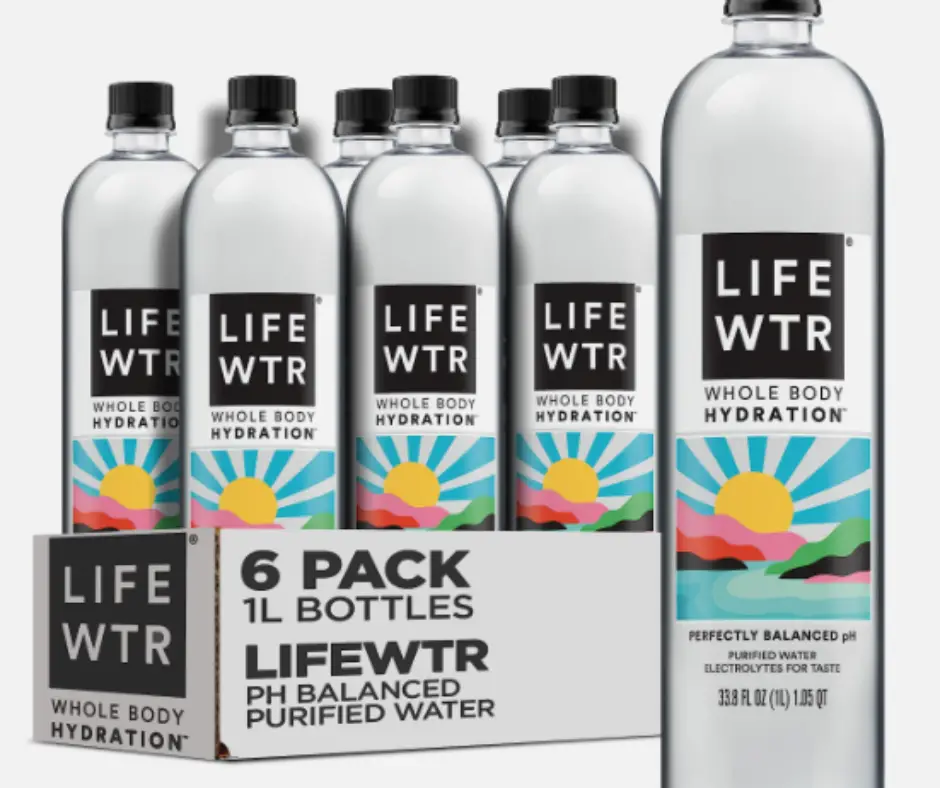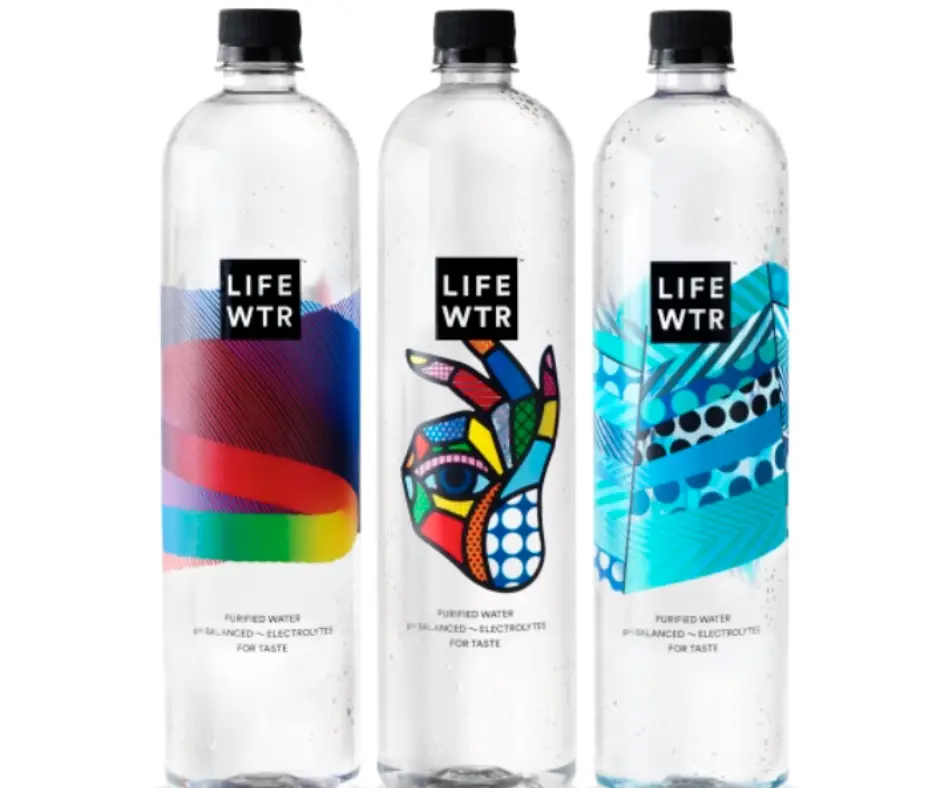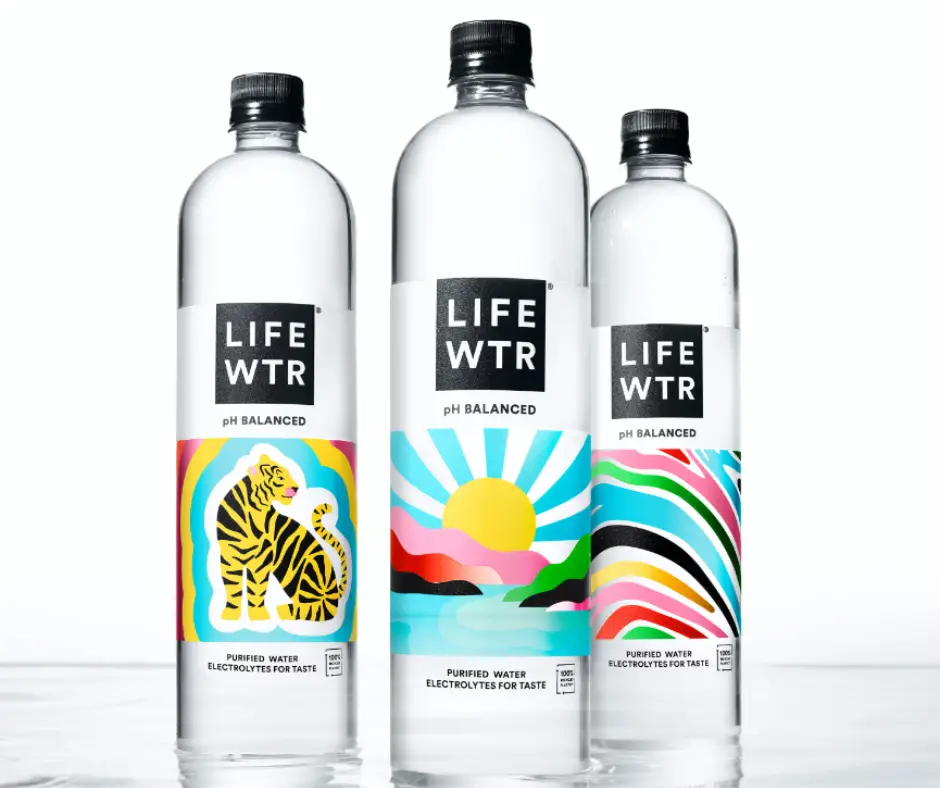Life Water has gained popularity as a healthy beverage option for those looking to make better choices in their daily routines. With its natural ingredients, added minerals, and electrolytes, many wonder if Life Water is truly good for their health. In this article, we will determine ‘Is Life Water Good For You?‘ and explore the benefits of Life Water.

The Popularity Of Life Water
Recently, there has been a growing interest in healthier alternatives to sugary drinks and unhealthy beverages. Consumers are becoming more conscious of their choice’s impact on their overall well-being, leading them to explore different options. Life Water has positioned itself as a brand that provides alkaline water with added minerals and electrolytes, offering a refreshing and health-conscious alternative for hydration.
Importance Of Choosing A Healthy Beverage
Choosing the right beverage plays a vital role in maintaining good health. Many traditional drinks are high in sugar and lack essential nutrients, which can lead to various health issues. Individuals can support their hydration needs by selecting beverages like Life Water that are low in calories and enriched with minerals and electrolytes while also obtaining additional health benefits.
As we delve deeper into this topic, we will analyze the health benefits of drinking Life Water and explore its impact on overall well-being. By understanding the advantages and considering individual needs and preferences, individuals can make informed decisions regarding their beverage choices.
Note: It is important to consult with a healthcare professional or registered dietitian before significantly changing your diet or incorporating new beverages into your routine to ensure they align with your specific health needs.
What Is Life Water?
To determine if Life Water is Good For You? you should first know what life water is.
Life Water: is a popular bottled water brand that has gained attention for its unique packaging and marketing claims. It is important to understand what Life Water is and determine if it is truly good for you.

Overview Of Life Water And Its Benefits
Life Water is a brand of purified bottled water that undergoes a multi-step filtration process to remove impurities and ensure safety. The water is sourced from various locations, including springs, wells, and surface waters. It is important to note that Life Water is regulated as a food product by the U.S. Food and Drug Administration (FDA), and the FDA does not require bottled water companies to use certified laboratories for water quality testing or report test results.
Despite the marketing claims made by Life Water, it is important to understand that bottled water, including Life Water, offers no significant health benefits compared to tap water. Tap water in the United States is regulated by the U.S. Environmental Protection Agency (EPA) and undergoes regular testing to ensure its safety. The EPA requires public tap water systems to provide information about the potential health effects of drinking water contaminants and comply with regulations.
While some individuals may prefer the taste or convenience of bottled water, it is essential to weigh its environmental implications. Plastic bottles contribute to plastic waste and can hurt the environment. Therefore, it is recommended to consider sustainable alternatives such as using reusable water bottles or drinking tap water when safe and available.
Marketing Claims Of Life Water
Life Water makes various marketing claims on its packaging and advertisements. These claims include:
- pH level: Life Water claims to have a specific pH range between 6.4 to 7.4, which is slightly less acidic than tap water. However, tap water typically falls within a similar pH range, so the difference is minimal and does not provide significant health benefits.
- Purification: Life Water claims to be purified through a multi-step filtration process, a standard bottled water procedure. However, tap water can also be purified and is regulated by the EPA.
- Electrolytes: Life Water adds electrolytes, such as magnesium sulfate and potassium bicarbonate, for taste. These electrolytes are naturally found in water but may be removed during purification. Adding them back to the water does not offer any additional health benefits.
It is important to critically evaluate these marketing claims and consider the overall value and impact of consuming bottled water like Life Water compared to other sustainable alternatives.
The pH Balance Of Life Water
Understanding The Ph Balance In Water
The pH balance of water refers to its acidity or alkalinity. The pH scale ranges from 0 to 14, with 7 considered neutral. A pH below 7 indicates acidity, while a pH above 7 indicates alkalinity. The human body has a slightly alkaline pH balance, typically ranging from 7.35 to 7.45. Maintaining a balanced pH level in the body is important for overall health and well-being.
How Life Water’s pH Compares To Other Waters
Life Water is known for its commitment to providing refreshing and hydrating water, but how does its pH level compare to other brands? Life Water has a pH balance of 8.5 to 9.5, slightly alkaline. This pH level is believed to help support the body’s alkaline buffer and reduce the occurrence of diseases associated with pH imbalances, such as acid reflux.
Compared to other popular brands, Life Water’s pH level places it in the alkaline range. For example:
- Dasani: Dasani has a neutral pH level of around 7, making it closer to the acidic side of the pH scale.
- Smartwater: Smartwater has a pH balance of around 5.5 to 7, closer to the neutral range.
- FIJI Water: FIJI Water has a pH balance of around 7.7 to 8.5, placing it in the slightly alkaline range.
It’s important to note that the pH level of water can vary slightly due to factors such as the source of the water and the treatment process. However, Life Water’s commitment to providing a higher pH level offers consumers a choice for those seeking water with a slightly alkaline pH balance.
A better understanding of the pH balance in water can help individuals make informed choices about the quality and benefits of the water they consume. If maintaining a balanced pH level in the body is a priority for you, Life Water’s slightly alkaline pH level may be a good choice.
Purification Process Of Life Water
The Purification Process Of Life Water
Life Water is a popular bottled water brand known for its refreshing taste and high-quality purification process. The company takes great pride in ensuring its water is clean, safe, and impurities-free. Here is an overview of the purification process that Life Water uses to provide consumers with a pure and refreshing drinking experience.
- Filtration: The first step in the purification process involves passing the water through multiple filtration stages. This helps to remove any large particles, sediment, and impurities that may be present in the water. The filtration process ensures the water is clean and free from visible contaminants.
- Reverse Osmosis: After the initial filtration, Life Water utilizes reverse osmosis to purify the water further. Reverse osmosis is a highly effective method that uses a semi-permeable membrane to remove impurities, including bacteria, viruses, and dissolved solids. This process ensures that the water is of the highest quality and safe for consumption.
- UV Disinfection: Life Water employs UV disinfection to make the water even more pure and free from harmful microorganisms. This involves exposing the water to ultraviolet light, which destroys any remaining bacteria, viruses, and other pathogens. UV disinfection is a chemical-free and eco-friendly method that ensures the water is safe to drink.
Removing Impurities And Contaminants
Life Water’s purification process is designed to remove many impurities and contaminants, ensuring the water is clean and safe for consumption. Here are some of the impurities and contaminants that Life Water’s purification process targets and removes:
- Suspended particles
- Bacteria
- Viruses
- Sediment
- Dissolved solids
- Chlorine and other chemical pollutants
- Unpleasant tastes and odors
By effectively removing these impurities, Life Water ensures that its bottled water meets the highest standards of purity and quality. This makes it a healthy and refreshing choice for hydration.
Overall, the purification process of Life Water utilizes advanced technologies and methods to remove impurities and contaminants, providing consumers with a clean and refreshing drinking experience. Its rigorous purification process reflects the brand’s commitment to quality and safety, making Life Water a good choice for pure, high-quality bottled water.

Added Electrolytes For Taste Enhancement
The Role Of Electrolytes In Water
Electrolytes are minerals that carry an electrical charge when dissolved in water. They are vital in maintaining fluid balance inside and outside our cells. Common electrolytes include sodium, potassium, calcium, and magnesium. These minerals are essential for various bodily functions, such as muscle contractions, nerve transmission, and pH balance (source: Healthline).
How Life Water Enhances Taste With Electrolytes?
Life Water is a packaged water brand that has gained popularity for its added electrolytes. The electrolytes in Life Water provide benefits for hydration and enhance the water’s taste. By adding electrolytes like sodium and potassium, Life Water creates a refreshing and crisp flavor profile that sets it apart from regular bottled water.
The presence of electrolytes in Life Water gives it a slight mineral taste, which can be more appealing to individuals who prefer a bit of flavor in their water. The electrolytes in Life Water may also contribute to a smoother and more hydrating drinking experience.
It’s important to note that while Life Water provides taste enhancement through added electrolytes, it is still essential to consider individual preferences and health needs. Some individuals may prefer the taste of plain water, while others may enjoy the added flavor and benefits of electrolyte-enhanced water like Life Water.
In conclusion, Life Water offers a unique taste experience by adding electrolytes to its bottled water. The presence of electrolytes enhances the flavor and provides additional hydration benefits. Whether you drink plain water or opt for electrolyte-enhanced options like Life Water, staying hydrated is key for maintaining overall health and well-being.
Health Effects Of Life Water
Assessing The Health Benefits Of Life Water
Life Water is a popular brand of flavored water that claims to offer various health benefits. However, evaluating these claims and understanding the potential effects of consuming Life Water is essential.
1. Hydration: Staying hydrated is crucial for overall health, and Life Water can contribute to your daily fluid intake. It provides a refreshing and flavorful alternative to plain water, making it more enjoyable for some individuals.
2. Vitamins and antioxidants: Life Water is often infused with vitamins and antioxidants that benefit the body. These nutrients can support immune function and help protect cells from damage caused by free radicals.
3. Electrolyte balance: Some varieties of Life Water contain electrolytes like potassium and sodium. These minerals are vital in maintaining proper fluid balance, nerve function, and muscle contractions.
While these benefits can be appealing, it’s important to note that they can also be obtained from other sources, such as fresh fruits, vegetables, and plain water.
Potential Risks And Concerns
Although Life Water is generally considered safe for consumption, there are a few potential risks and concerns to be aware of:
1. Sugar content: Some flavors of Life Water may contain added sugars or artificial sweeteners. Excessive intake of sugary beverages can contribute to weight gain, tooth decay, and other health issues. It’s essential to read the labels and choose options with minimal sugar or unsweetened varieties.
2. Artificial additives: Some Life Water products may contain artificial colors, flavors, or preservatives. While these additives are generally recognized as safe by regulatory agencies, some individuals may prefer to avoid them or opt for more natural alternatives.
3. Individual sensitivities: Certain individuals may be sensitive or allergic to specific ingredients in Life Water. It’s important to read the labels carefully and consult a healthcare professional if you have any concerns or known allergies.
Life Water can be a refreshing and hydrating option, especially for those who struggle to consume plain water. However, making informed choices and considering your overall diet and lifestyle is crucial when deciding on the best beverage options for your health.
Environmental Impact Of Life Water
When considering ‘Is Life Water Good For You?‘, it is essential also to examine its environmental impact. Bottled water, in general, poses significant challenges to the environment due to the production and disposal of plastic bottles. Here are some key factors to consider:
The Impact Of Bottled Water On The Environment
1. Plastic pollution: The production of plastic water bottles contributes to the growing issue of plastic pollution in our oceans and landfills. Plastic takes hundreds of years to degrade, which can harm wildlife and ecosystems during that time.
2. Energy consumption: The production and transportation of bottled water require significant amounts of energy. This energy consumption contributes to greenhouse gas emissions and climate change.
3. Water scarcity: Bottled water companies often extract water from local sources, which can lead to water scarcity in those areas. This issue becomes especially problematic in regions already facing water shortages.
Alternatives To Consider For Sustainability
While it is important to stay hydrated, there are more sustainable alternatives to bottled water that can help reduce your environmental impact:
1. Tap water: In many developed countries, tap water is safe and regulated. Investing in a water filter or using a reusable water bottle to carry tap water can help eliminate the need for bottled water.
2. Filtered water pitchers: If you prefer filtered water, consider using a filtered water pitcher at home. These pitchers remove impurities from tap water, providing clean and safe drinking water.
3. Reusable water bottles: Using a reusable water bottle made of materials like stainless steel or BPA-free plastic can greatly reduce your consumption of single-use plastic bottles. These bottles are durable, easy to clean, and can be refilled whenever needed.
By opting for more sustainable alternatives to bottled water, you can positively impact the environment and reduce your contribution to plastic pollution. Remember, every small change counts in preserving our planet for future generations.
FAQ about Is Life Water Good For You?
Q: Is Life Water good for you?
A: Life Water is a high-quality bottled water that is pH balanced and purified. It contains additional electrolytes for taste enhancement.
Q: Are Life Water bottles recyclable?
A: Yes, Life Water bottles have a recycling number 1 on the bottom of the bottle and are generally recycled in all communities with recycling programs.
Q: What does the recycling number on the bottle mean?
A: The number 1 located inside the recycling symbol on the Life Water bottle is the resin identification code that classifies the type of plastic used. Recycle plants use this code to aid in the sorting and recycling process.
Q: Are there any changes to the Life Water product with the new rPET bottle?
A: No, there is no change to the Life Water product with the new rPET bottle. rPET stands for recycled polyethylene terephthalate, which means the plastic is made from recycled plastic. The rPET bottles are made of 100% recycled plastic and are 100% recyclable.
Q: Is alkaline water better for you than plain water?
A: According to Katherine Zeratsky R.D. L.D., alkaline water is not better than plain water for most people.
Q: What gives Pure Life Natural Spring Water its great taste?
A: Pure Life Natural Spring Water comes from carefully selected and protected springs and is bottled right at the source. It is known for its great taste.
Q: Where can I buy Pure Life Natural Spring Water?
A: Pure Life Natural Spring Water can be found at all major grocery stores across Canada in a variety of bottle sizes and case formats. It is also available at convenience and drug stores.
Q: Why is it important to drink water?
A: Hydration is vital to your body’s well-being. Water is essential for life, making up approximately 60% of an adult body. Children, in particular, have higher water needs.
Q: Where can I find the expiry date on Pure Life Natural Spring Water?
A: On single-serve bottles, the expiry date can be found just below or above the label, etched lightly in white on the bottle. The code is printed onto one side or the top of the case on case packs.
Q: Can Pure Life bottles be recycled?
A: Yes, all Pure Life bottles can be recycled, and it is encouraged. Pure Life has designed a fully recyclable PET bottle in an effort to eliminate bottles ending up in landfills.
Q: Are Pure Life bottles BPA-free?
A: Yes, all Pure Life bottles are made from either PET or recycled PET and are completely BPA-free.
Q: Does Pure Life Natural Spring Water contain fluoride?
A: In Canada, Pure Life Natural Spring Water is only sold where fluoride is naturally occurring straight from the source. The amount is declared on the label.
Q: Why does Pure Life Natural Spring Water contain ozone?
A: Ozone is used in Pure Life Natural Spring Water as a strong disinfectant to eliminate microbial problems and taste and odor issues. It does not cause residual off-tastes or odors.
Q: Why are Pure Life bottles difficult to open?
A: Since 2005, Pure Life has reduced the size of their bottle caps, which can make it difficult to open for some consumers. Squeezing the bottle tightly can build up pressure and make it more challenging to turn the cap, resulting in spills.
Q: Why does my Pure Life Water have an off taste?
A: Pure Life single-serve products are bottled in containers made of PET, which is approved for use as a food packaging material. Under certain conditions, the water can pick up slight taste or odor characteristics from the packaging material or storage environment. However, these off-tastes or odors do not present a health or safety risk.
Conclusion
Is Life Water Good For You?
When determining ‘Is Life Water Good For You?’, it is important to consider several factors. While Life Water offers some health benefits, such as improved hydration and the addition of essential minerals and electrolytes, it is important to remember that drinking water alone cannot replace a balanced diet and healthy lifestyle. It is also important to note that individual needs and preferences may vary. Some factors to consider when choosing a beverage include:
Nutritional Content: Evaluate the nutritional content of Life Water and compare it to other beverages. Consider the presence of added sugars, artificial sweeteners, and other additives that may affect your health.
Hydration: Consider your hydration needs and choose a beverage that helps you meet those needs. While Life Water can contribute to hydration, it is important to consider other fluids sources like plain water and other healthy beverages.
Taste and Enjoyment: Choose a beverage that you enjoy and find refreshing. This can help you stay hydrated and adhere to a healthy lifestyle.
Overall Diet: Remember that no single beverage can provide all the nutrients your body needs. Maintaining a balanced and varied diet that includes a combination of nutritious foods and beverages is important.
Whether Life Water is good for you depends on your preferences, needs, and goals. It is always a good idea to consult with a healthcare professional or registered dietitian for personalized advice and guidance on your dietary needs.
References:

James Robinson loves coffee and blogging all about coffee. His blog is full of informative posts about the best ways to enjoy coffee and the many different types of coffee out there. He also shares recipes for delicious coffee-based dishes, and his followers can always count on him to offer tips on how to improve their coffee-making skills.

